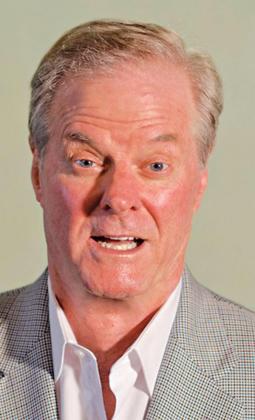
Jim Brown
Is medical marijuana the next Louisiana boondoggle? The current Louisiana legislature seems bent on pushing through extended legislation that enlarges the number of medical conditions marijuana is supposed to treat. And even though the use of marijuana for any purpose, medical or recreational, is specifically prohibited under federal law, the legislature seems hell-bent on opening up the floodgates for any number of medical conditions.
Got a backache? You qualify for some pot. How about stress? Get a prescription to ease your pressure with a little cannabis. And like most folks, do you have some muscle spasms? I often do after I work out. No problem according to the proposed law sailing through the legislature. Just try a little grass.
How about glaucoma? This is a complicated disease that damages the optic nerve. But any benefits that marijuana supposedly gives are offset by lowered blood flow that can do even more nerve damage. Most eye doctors are against treating glaucoma with marijuana including the American Association of Ophthalmology, American Glaucoma Society, and the Glaucoma Research Foundation. Yet legislators in the Bayou State feel they can second guess the medical profession and endorse this questionable use of an untested plant.
And speaking of the medical profession, why are there not more doctors who are backing and endorsing all these supposed legitimate ways to treat a number of listed conditions? Why hasn’t the state medical association spoken up in support? Medicine does not seem to be driving a push for marijuana legalization. The debate has become immersed in who gets the licenses to dispense. Just like who got the riverboat gambling licenses. It’s all about politics and making money.
The state pharmacy board was charged with the job of selecting nine licensees to sell medical marijuana. Politicians from U.S. senators to legislators and numerous local officials, all with little or no medical background in marijuana medical benefits, weighed in to influence the selection process. Did political clout have any bearing on who got the licenses? Well, in New Orleans the winning bid was ranked fourth by a selection committee, but the Pharmacy Board, in its wisdom, picked the lower ranked drugstore. You be the judge.
In the original medical marijuana legation passed back in 2016, the public was told that both LSU and Southern University were to be the state locations to develop the drug. That quickly went by the wayside and now several private companies will be paid state funds to do the work the schools themselves were supposed to undertake. Again, politics and money.
And don’t forget that marijuana use, even for medical purposes, is still illegal under federal law. The Drug Enforcement Administration’s Schedule 1 group of drugs lists marijuana with a high danger along with one of the highest potentials for addiction and no acceptable medical use. Even cocaine is not listed as Schedule 1. Why is marijuana listed as being so dangerous? One of the main reasons is that it is so addictive. Today’s pot is some 20 times more potent then the weed that was around back in the 70s.
That’s something you won’t hear on the floor of the Louisiana legislature. In fact, the addiction is just as prevalent as pot that is smoked purely for recreational reasons. And researchers have recorded a long list of potential dangerous results including respiratory and heart related problems, mental degeneration, and possible addiction to opioids and other drugs. A study by the JAMA Internal Medical Group concluded that marijuana users, both medical and recreational, are more susceptible to auto accidents because of lack of coordination, perception and judgment.
The bottom line is that the whole range of marijuana use needs much more study, particularly as to the long-term effects that take years to properly research. When the addiction rates rise, as they most certainly will, remember that your legislators pushed this questionable drug through without requiring proper research and public safeguards.
Far from protecting the public, this dubious legislation will put many users, looking for the quick medical fix, at even more risk for other complications. The doctor’s medical oath says, “first do no harm.” Perhaps that’s why so few doctors have endorsed this legislative effort to legalize a drug whose use has too many unanswered questions. The public deserves better.
Peace and Justice
Jim Brown
Jim Brown’s syndicated column appears each week in numerous newspapers throughout the nation and on websites worldwide. You can read all of his columns at jimbrownusa.com.
